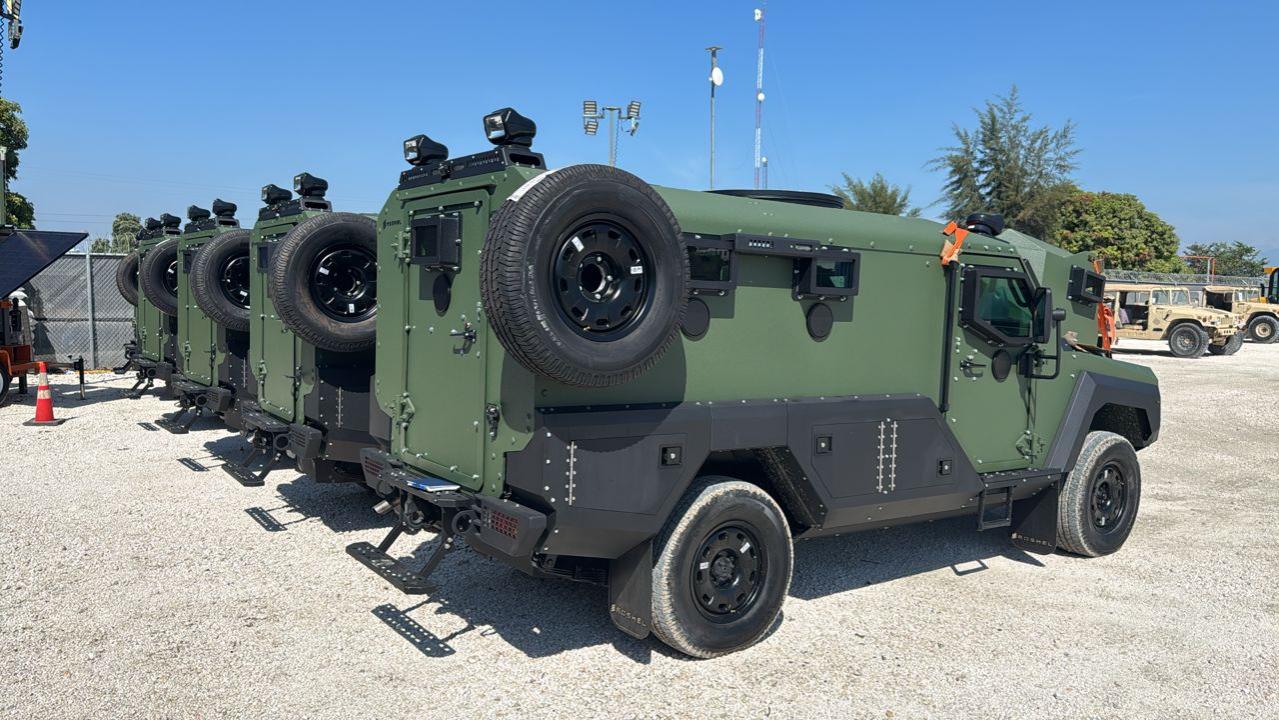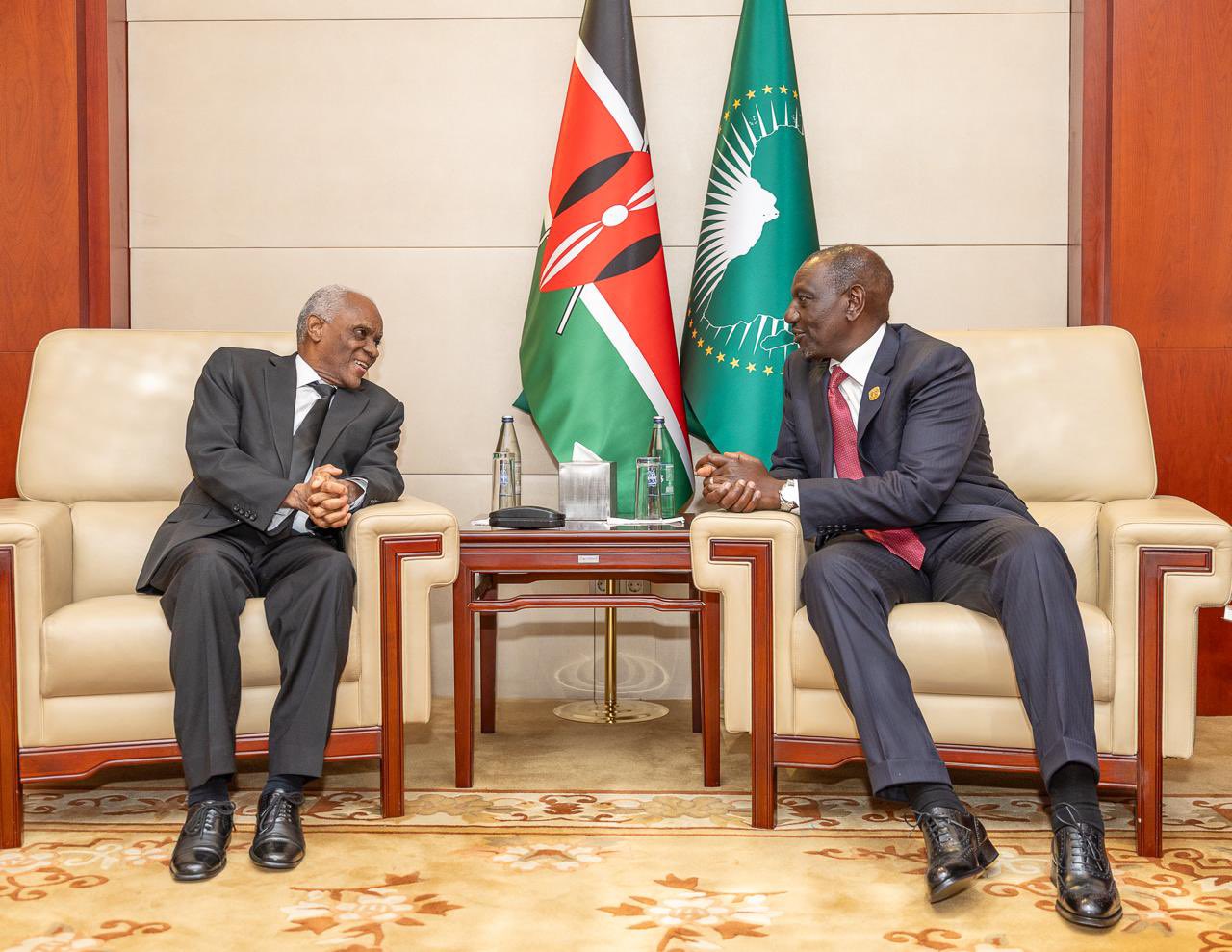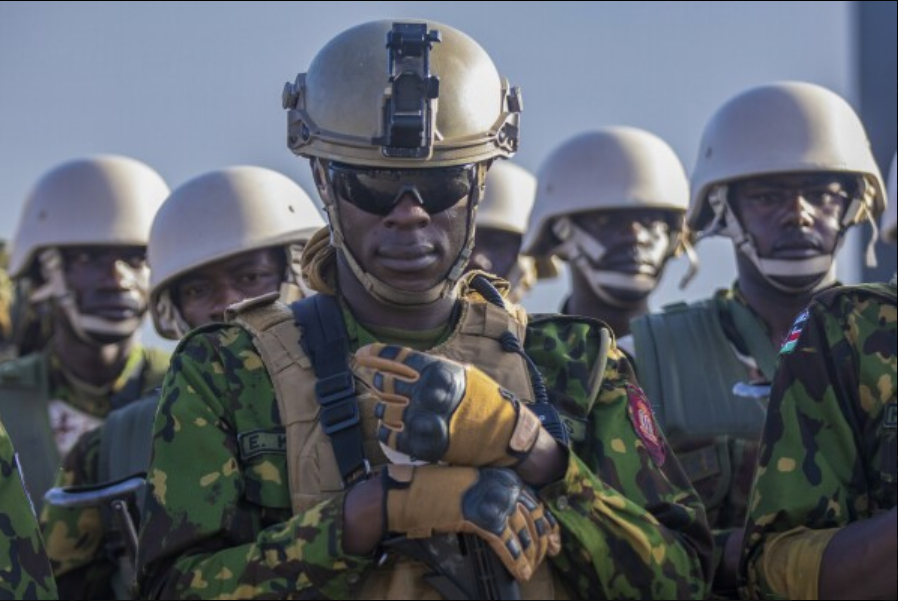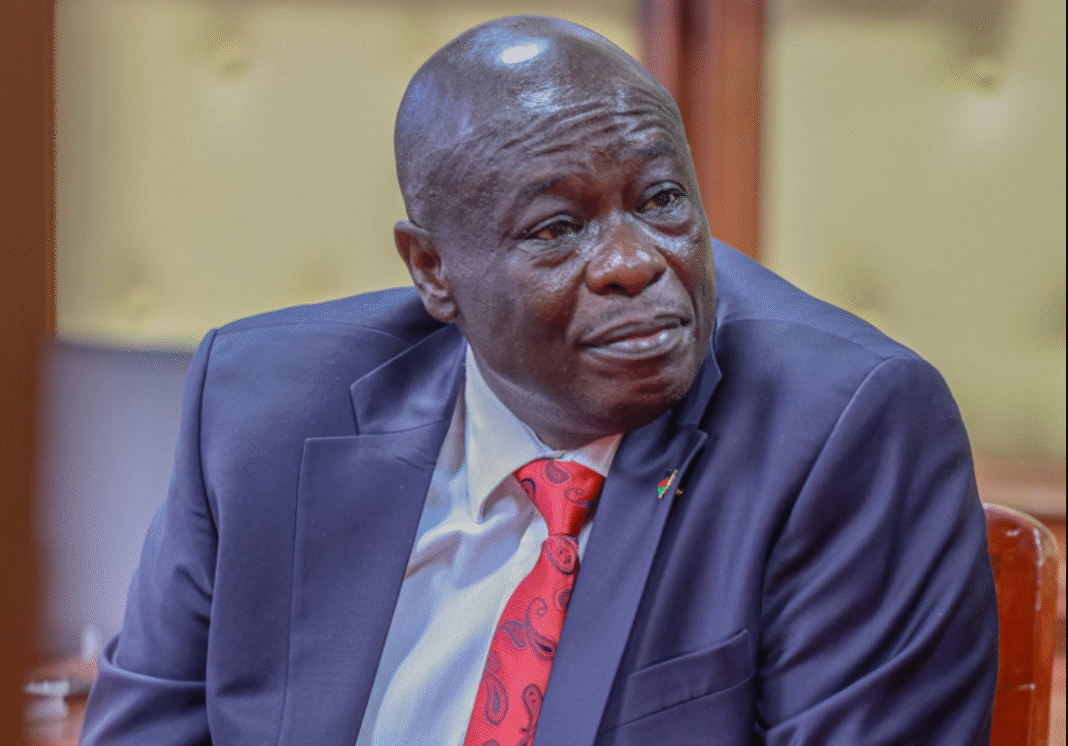A fortnight after President William Ruto called out world leaders for neglecting the Haiti mission, the United States has responded with strong action. Washington has delivered 20 brand-new armoured vehicles to bolster anti-gang operations in Haiti, marking a turning point for the embattled Caribbean nation.
The delivery, facilitated by the US Bureau of International Narcotics and Law Enforcement Affairs, signals a renewed commitment by the Trump administration to restore law and order in Haiti. It also affirms Ruto’s push for global responsibility in tackling security crises beyond national borders.

US Reinforces Haiti Security with 20 New Armoured Vehicles
In a statement released on Wednesday, October 8, the US government confirmed the arrival of the armoured vehicles, saying they would strengthen the capacity of both the Gang Suppression Force (GSF) and the Haitian National Police (HNP).
“This week, through the State Department’s Bureau of International Narcotics and Law Enforcement Affairs, the United States delivered 20 new armoured vehicles to the Gang Suppression Force,” the US government announced.
“These vehicles will reinforce the operational ability of the GSF and HNP to counter the deadly gangs terrorising the people of Haiti. The delivery reaffirms our firm commitment to Haiti’s security and stability,” the statement added.
The move is being hailed as a significant boost to the ongoing anti-gang operations in Haiti, where heavily armed groups continue to control key parts of the capital, Port-au-Prince.
Kenyan Troops Get Timely Support After Months of Struggle
For the Kenyan officers serving under the GSF, the new vehicles come as a lifeline. Since deployment, many have faced intense resistance with inadequate equipment. President Ruto had earlier lamented that the officers were forced to rely on second-hand, poorly maintained vehicles, some of which broke down mid-operation.
During his address at the United Nations General Assembly (UNGA) on September 22, Ruto highlighted the logistical gaps that endangered peacekeepers on the ground.
“It was expected that there would be force multipliers such as armoured personnel carriers and proper logistical support to make the mission successful,” Ruto said.
“The United States did provide vehicles, but unfortunately, most of them were second-hand. They broke down, often in dangerous areas,” he added.
Ruto’s remarks were not a criticism but a call for improved coordination among international partners. His speech, described as bold and timely, seems to have struck a chord in Washington.
Gang Suppression Force Expands Its Reach
The GSF, which replaced the Kenya-led Multinational Security Support (MSS) Mission, remains a broad coalition of international forces working to stabilize Haiti. Although the MSS was phased out, the Kenyan contingent remains an integral part of the GSF’s field operations.
With the latest reinforcement, the GSF now has stronger mobility and combat readiness to reclaim areas under gang control. The newly delivered armoured vehicles are designed to withstand heavy gunfire and navigate Haiti’s rough terrain—a much-needed advantage for peacekeeping units.
Analysts believe the US intervention aligns with Ruto’s persistent diplomatic outreach to global powers, urging them to share the burden of global peace efforts. His appeal appears to have reshaped the world’s response to the escalating security crisis in Haiti.

Ruto’s Diplomatic Push Reframes Global Security Debate
President Ruto’s consistent advocacy at global forums, including the UN and the African Union, has reframed how leaders perceive peace missions in fragile states. His stance—that the world must act collectively rather than selectively—has now borne tangible results.
The arrival of the new armoured vehicles is more than just logistical aid; it represents a shift in attitude by global powers toward proactive engagement. Ruto’s influence has positioned Kenya as a credible voice in global security debates and demonstrated how African leadership can shape international policy.
In Haiti, where gangs continue to threaten livelihoods and democracy, the delivery offers a glimmer of hope. For Ruto, it is validation that diplomatic pressure works—and that Kenya’s voice on the global stage carries real weight.


